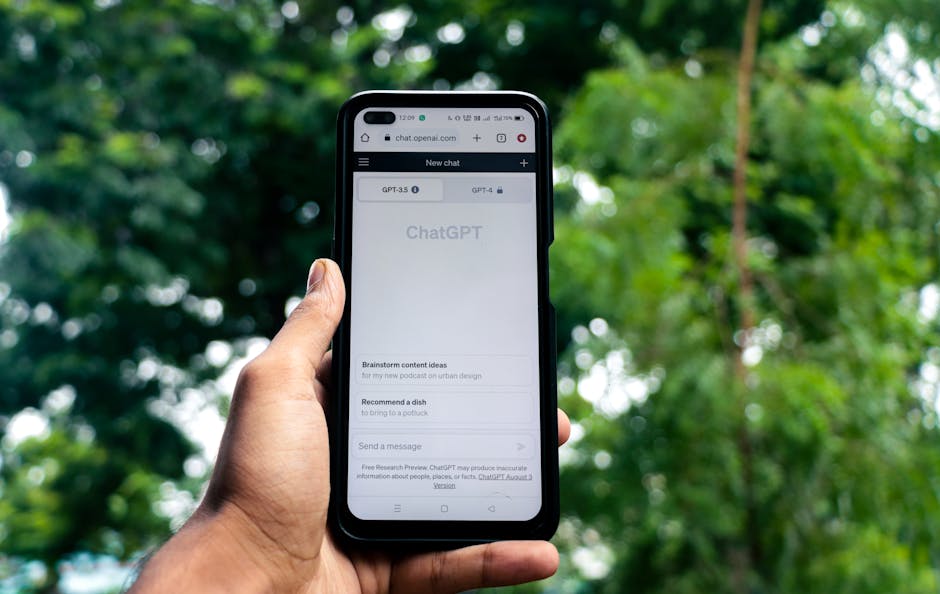ChatGPT’s Rise in Social Media Marketing: A 2025 Analysis
The burgeoning use of artificial intelligence (AI) in social media marketing continues to accelerate, with ChatGPT, an advanced large language model (LLM), emerging as a key player in 2025. This analysis examines ChatGPT’s impact on various aspects of social media strategy, delving into its benefits, limitations, and future implications for marketers. Early adoption has been significant, with some analysts predicting widespread integration within the next few years.
Enhanced Content Creation and Strategy
ChatGPT’s capacity to generate various forms of social media content is revolutionizing marketing strategies. Marketers utilize the tool to draft engaging posts, captions, and even scripts for video content, significantly improving content creation speed and efficiency. The speed at which content can be generated is leading to an increase in the volume of social media posts.
Content Variety and Customization
Beyond basic text generation, ChatGPT’s capabilities extend to adapting content for diverse platforms. Marketers can fine-tune prompts to tailor messaging for platforms like Twitter, Instagram, or LinkedIn, optimizing engagement rates across different audiences. This ability to customize is a key factor in its rising popularity. The ability to create tailored messaging for diverse platforms is proving to be a significant advantage.
This personalized approach is driving more effective marketing campaigns, leading to increased conversion rates in many sectors. The focus is shifting towards niche audiences and highly specific marketing funnels.
Streamlined Social Media Management
Beyond content creation, ChatGPT aids in the overall management of social media accounts. Tasks such as scheduling posts, analyzing social media performance data, and even responding to customer queries can be partially automated using the tool. Its integration with various social media management platforms is steadily growing.
Automated Responses and Customer Engagement
ChatGPT’s ability to generate automated responses to common customer inquiries is a game-changer for brands. While human oversight remains crucial, the AI can handle basic queries freeing up human agents to focus on more complex issues. This automated process has the potential to dramatically reduce response times.
This increase in efficiency is reflected in customer satisfaction surveys and improved brand perception. Businesses are reporting quicker resolution times and a marked increase in satisfied customers.
Challenges and Limitations
While the benefits are undeniable, utilizing ChatGPT in social media marketing presents challenges. The AI’s outputs require careful review and editing to ensure accuracy, brand consistency, and an authentic tone. Over-reliance on AI-generated content risks losing a unique brand voice.
Maintaining Brand Authenticity
Striking a balance between AI-assisted content creation and human oversight is a crucial aspect of successful implementation. Overly robotic or generic content can alienate audiences, diminishing the impact of marketing efforts. Careful curation remains crucial for preserving the unique voice.
The potential for plagiarism or accidental misuse of copyrighted material poses another concern. Brands must be vigilant in reviewing AI-generated content before publication, ensuring compliance with intellectual property laws. A new breed of AI-content checkers is also emerging.
Ethical Considerations and Future Trends
Ethical considerations surround the use of AI in marketing, particularly in relation to transparency and data privacy. Users should always be informed when AI is involved in communication, and data security protocols must be robust. Regulations surrounding AI use in marketing are still developing.
Transparency and Data Privacy
Concerns about potential bias in AI-generated content also exist. Algorithms may perpetuate existing societal biases, leading to discriminatory or unfair marketing practices. Marketers must actively address these concerns by choosing reliable AI providers and monitoring outputs. Active steps to mitigate bias are proving essential.
The integration of ChatGPT and other LLMs into comprehensive marketing suites is anticipated to increase significantly throughout 2025. This trend signals a shift towards more sophisticated, AI-driven marketing strategies.
The Future of ChatGPT in Social Media Marketing
The use of ChatGPT in social media marketing is expected to continue its upward trajectory in 2025. Improvements in the AI’s capabilities, coupled with greater integration with other marketing tools, will likely lead to even more sophisticated applications.
Key Takeaways for 2025:
- Increased efficiency in content creation and scheduling.
- Enhanced customer engagement through automated responses.
- Growing concerns surrounding authenticity, bias, and ethical implications.
- Significant investment in AI-powered marketing tools by businesses.
- Development of new regulations and guidelines for AI in marketing.
The ongoing evolution of AI promises a transformative impact on social media marketing in the coming years. However, responsible and ethical implementation remains paramount to ensure the technology benefits both businesses and consumers alike. The industry needs to adapt to this rapid change to fully realize the potential while mitigating its risks.

